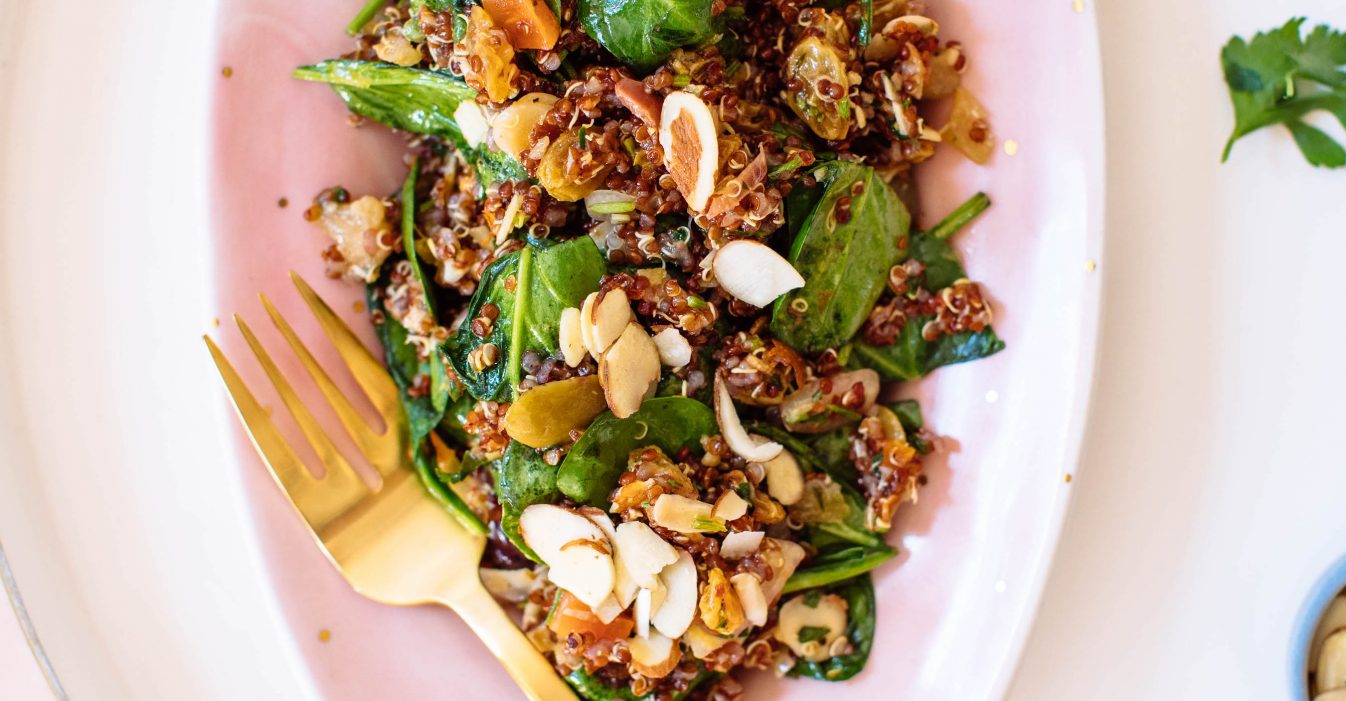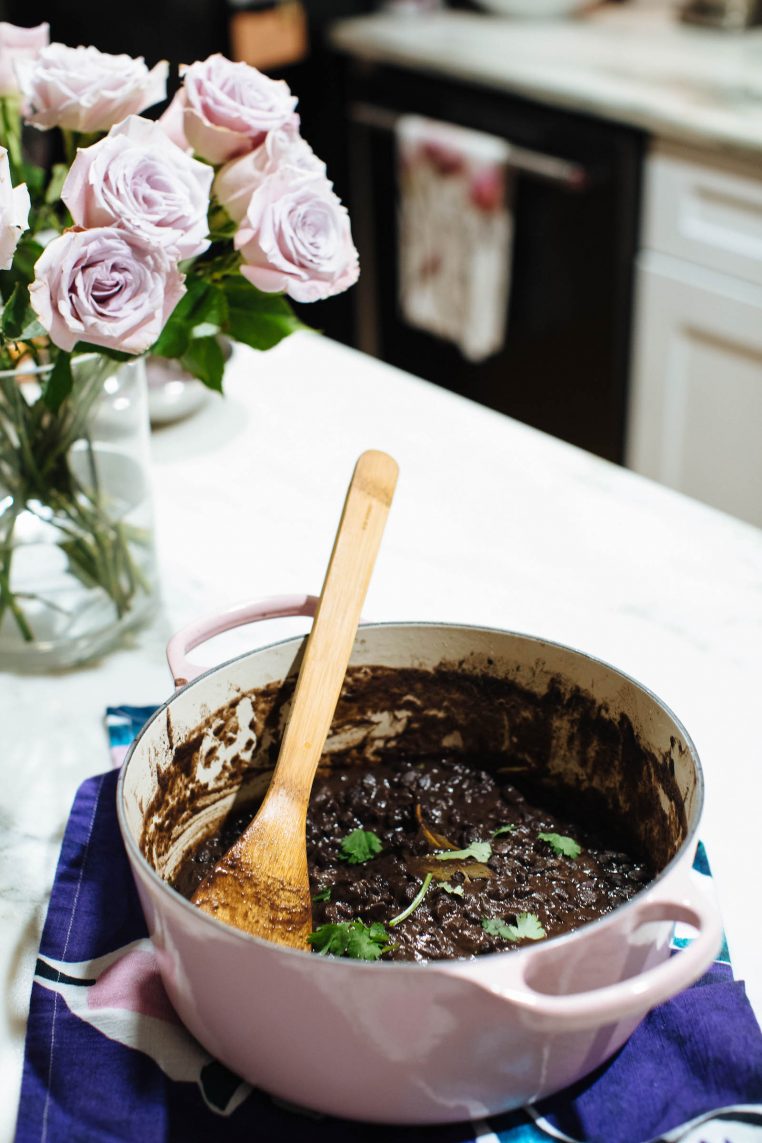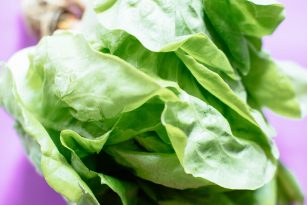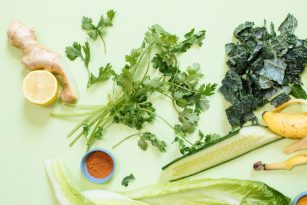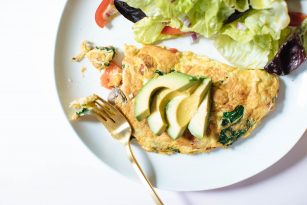It’s common to experience vegan nutrient deficiencies, especially when you’re first transitioning to a plant-based diet and still learning about the nutritional differences.
When switching to a plant-based or fully vegan lifestyle (or even if you’ve been following it for a while), you’ll want to pay extra attention to a few key nutrients you could potentially miss if you’re not fully aware of how to get them through plants. I’m going to walk you through exactly what nutrients vegans need to be conscious of, from your protein intake to zinc and I’ll share how you can get them when eating plant-based.
Here, I explain what those nutrients are, why they’re important, and where you can get them.
Most Common Vegan Nutrient Deficiencies and Plant-Based Food Sources
Plants can provide us with an abundance of nutrients, minerals, and vitamins, and eating more plants, regardless of whether or not you choose to practice a vegetarian or vegan diet, can be so beneficial to your wellbeing.
With that being said there are a few nutrients you want to make sure you’re getting that commonly come from animal-proteins, so as you’re eating plant-based you’ll want to make sure you’re getting enough of these to feel your best every day.
1. Protein In a Vegan Diet
You need protein for everyday living — it helps maintain bone, skin, and muscles. It’s also especially important for people looking to build muscle or plant-based eaters who are also very active.
If you’re not getting enough protein, you may notice you feel lethargic, have increased hunger and overall appetite, hair skin and nails may become really dry and brittle, you may be retaining more water than usual, have slow wound healing from cuts and scrapes, and getting more infections or sickness more often.
While you don’t need meat to get enough protein since there are great sources of plant-based proteins available to you, you do have to make sure you’re aiming for quality sources and enough of them.
There used to be a push toward combining foods to make sure you get all the essential amino acids (the building blocks of protein) in one meal, but research has shown us that’s old news and it’s more important to eat a variety of foods with different amino acids which our body will use. Just keep in mind to eat a diverse range of protein-rich (and still plant-based) foods. If you do that, you’ll likely meet your needs. (1)
Some of the top and most popular protein foods include beans, lentils, seeds, and nuts. Check out a full list of the top 10 plant-based protein sources, and just make sure you mix it up.
Be sure to also find protein-packed plant-based recipes you love to help you incorporate those into your daily life!
2. Iron In Vegan Diet
Your body needs iron to make hemoglobin, which carries oxygen throughout the body.
If you’re not getting enough iron, you may feel low in energy, have shortness of breath, find your skin tone to be paler than your usual skin tone, have changes in your menstrual cycle, headaches, heart palpitations, really dry and brittle hair skin nails, restless legs, spoon-shaped nails, increase in food cravings such as strange foods like chalk and ice, feel colder more often, and may have increased in anxiety.
The tricky thing about this nutrient in plant-based eating is that it’s sometimes hard to absorb, and some foods can actually block your body’s absorption. These foods include polyphenols tannin, found in coffee or tea, and phytates, which are found in whole grains and legumes.
The trick is to eat iron-rich foods — like whole grains, nuts, seeds, fortified foods, and green veggies — along with some vitamin C, found in things like red bell peppers, oranges, or grapefruit.
Because of the possibility for malabsorption, it’s best to get lots of iron from many sources and do not take any calcium supplements around the time of an iron-rich meal, calcium competes with iron and may hinder its absorption.
For example, a cup of cooked spinach yields 245 milligrams of calcium and about six milligrams of iron. Try it in a dish like this one bowl skillet meal and add a cup of cooked black beans to add another nearly four milligrams of iron to the dish, with a squeeze of fresh lemon (hello vitamin C), and even better if you sprinkle some nutritional yeast on it which is loaded with B vitamins and protein!
For your daily goal, aim for a total of 14 milligrams of iron if you’re a male and 33 milligrams if you’re a female, as women are at higher risk for low iron levels (1). Of course, these are just general recommendations, my clients sometimes have higher or lower needs depending on their unique body and health goals — always chat with your dietitian about what you need!
3. Zinc In Vegan Diet
Zinc helps your cells grow and repair, plays a role in thyroid health, skin health, and aids in protein metabolism, so basically you need it for everyday function. It also helps with immune function, wound healing, and DNA synthesis (6).
Like iron, the body can have trouble absorbing zinc, particularly in a plant-based diet or if you have unique digestive issues that make it more difficult for your body to absorb zinc. This is especially true when eating certain legumes and whole grains, which contain phytates that block absorption.
When going fully plant-based, try to get about 17 milligrams of zinc for males and 12 milligrams for females (1) — as you need more when you’re not eating meat. The highest plant sources include (6):
- baked beans (2.9 milligrams per serving)
- cashews (1.6 milligrams per serving)
- chickpeas (1.3 milligrams per serving)
- oatmeal (1.1 milligrams per serving)
- hemp seeds (3 milligrams per serving)
- pumpkin seeds (2 milligrams per serving)
I personally love adding hemp seeds to cereal and smoothies, as well as soups or dips. A few cooking techniques will help improve the absorption of zinc, including soaking beans in water for a few hours and letting them sit until sprouts form. Also, if pairing with grains, opt for leavened ones, like whole-grain bread rather than something like crackers (6).
4. Vitamin D In Vegan Diet
You need vitamin D to absorb calcium and therefore, promote bone health. It also plays a role in intestinal, immune, and cardiovascular systems, as well as the health of the pancreas, muscles, brain, and cell cycles (3).
According to the National Health and Nutrition Examination Survey about 42% of the population has a vitamin D deficiency, so it’s crucial to pay attention to how much you’re getting and how you’re feeling.
If you have a vitamin D deficiency, you may notice low energy and feeling tired most of the time, getting sick more often, mood swings, bone pain, changes in menstrual cycle, depression and anxiety, and hair loss.
Spending plenty of time in the great outdoors will likely help you get your fill of vitamin D. Research says to aim for about 10 to 20 minutes in the spring and summer, but in the winter you’d need about two hours (4). That can be difficult to get, which means turning to foods or a supplement is necessary. If the sunshine isn’t working in your favor, add vitamin D to your meals. Most vitamin D sources come from animals (namely, fish), but you can also find it in fortified cereals and plant-based milk.
Talk to your dietitian or doctor if you think you might lack vitamin D, as many people do require a supplement during the winter seasons or throughout the year. The recommended daily dosage is 600 IU for people ages 1 to 70, with people over that age requiring 800 and younger, 400 (5).
5. Calcium In Vegan Diet
You might already know that calcium helps protect your bones, but it also helps with nerve and cell signaling, the dilation of blood vessels, and muscle function (7). Adults need 1,000 to 1,200 milligrams per day, in general.
Unlike other mineral and nutrient deficiencies, a calcium deficiency isn’t as noticeable. Over time it can lead to bone loss and lower bone density. It’s important to be more proactive about calcium intake than reactive.
You probably also remember hearing that you need to drink your (dairy) milk to protect your bones, which is partially true. However, you can still get calcium from veggie-forward foods — you just need some vitamin D for your body to absorb it, as I mentioned above. That’s why you’ll sometimes find low levels in people that eat mostly plants and get limited sun exposure.
Keep in mind many veggies come high in calcium, including collard greens, bok choy, and kale. In other words: make sure you are incorporating greens into your meals. One of my favorite kale recipes is this caesar nori wrap. Another good calcium-rich source is tofu (when made with calcium sulfate, it can contain up to 253 milligrams of calcium in one serving). Try this tofu scramble to get your fill.
6. Vitamin B12 In Vegan Diet
Vitamin B12 is another common vegan nutrient deficiency.
Vitamin B12 is important for producing DNA, and is essential for red blood cell formation and cell metabolism.
However, this can be a tricky micronutrient to consume on an animal-free diet. In fact, one study found that about half of vegans are B12 deficient (2). That doesn’t mean it’s impossible to get enough of the nutrient, though.
You may be deficient if you feel lethargic, have depression or increase in anxiety, mood swings, poor sleep, paler skin color than your usual tone, feeling pins and needles stingy on your body, mouth ulcers and cuts, or blurry vision.
The goal intake amount for adults: 2.4 micrograms (8).
One of my favorite plant-based ingredients with B12, along with several other B vitamins is nutritional yeast which has a cheesy flavor and is great on top of Foundational Five Nourish Bowls and in so many recipes.
Also, most almond milk or non-dairy food items like milk, yogurt, cereal, etc. are fortified to include vitamin B12.
How to Get All The Nutrients Vegans Need
Now that you understand a few of the common nutrients missing in vegan diets, you can be more conscious to make sure you’re consuming foods that provide these things to you.
In addition, some of my clients depending on their lifestyle and diet choices, benefit from taking a multivitamin or specific vitamins to meet their dietary needs. Be sure to supplement smart and work with a registered dietitian like one of our coaches at Nutrition Stripped. We can help you make sure that you’re eating a well-balanced plant-based or vegan diet and help you navigate any vegan nutrient deficiencies or other challenges you may be experiencing! You can sign up for a free call to see if coaching is right for you!
References
- David Rogerson. (2017.) Vegan diets: practical advice for athletes and exercisers.
- Gilsing AM, Crowe FL, Lloyd-Wright Z, Sanders TA, Appleby PN, Allen NE, Key TJ. (2010, September.) Serum concentrations of vitamin B12 and folate in British male omnivores, vegetarians and vegans: results from a cross-sectional analysis of the EPIC-Oxford cohort study.
- Nair, R., & Maseeh, A. (2012). Vitamin d: the sunshine vitamin.
- Maria-Antonia Serrano, Javier Cañada, Juan Carlos Moreno, Gonzalo Gurrea. (2017, March.) Solar ultraviolet doses and vitamin D in a northern mid-latitude.
- Vitamin D Fact Sheet for Health Professionals. National Institutes of Health.
- Zinc Fact Sheet for Health Professionals. National Institutes of Health.
- Calcium Fact Sheet for Health Professionals. National Institutes of Health.
- Vitamin B12 Fact Sheet for Health Professionals. National Institutes of Health.

